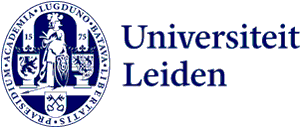
University Council speaks with Executive Board about security, demonstrations and occupations
On 14 July, the University Council discussed the draft version of the new ‘security framework’ with the Executive Board. This framework should make Leiden University’s security policy more transparent. The evaluation of events, demonstrations and occupations this spring was also discussed.
The university is working on a new security framework, which is expected to be implemented in January 2026, and describes the content and organisation of Leiden University’s security policy. It outlines the guiding principles and key agreements, and is primarily focused on ensuring the safety and security of university staff, students, and visitors. This proposed security framework is still a draft, and the Council will be invited to provide its advice on it this autumn. Deans and other stakeholders will also be able to offer feedback.
The University Council advised the Executive Board to provide the academic community with more information about what exactly intelligence services in the Netherlands do and how, more specifically, that relates to threat assessment for higher education and Leiden University in particular. Vice-President of the Executive Board Timo Kos said that the Executive Board welcomes this advice. ‘The new security framework will help increase the visibility and transparency of our security policy. This is a learning curve for us all. Our own security team is also fully aware that greater transparency is needed – wherever possible – and they also want to see this happen. We are working on this, one step at a time. Once it has been developed, the new security framework will also be evaluated annually.’
Demonstration on 6 May and police violence
The Council and the Board also discussed the evaluation report on events, demonstrations and occupations at the university in the March-May 2025 period. The report was prepared by Security Affairs at the request of the Executive Board. The University Council still had questions about the events in Wijnhaven on 6 May, when the police were deployed during a demonstration. The Council wanted to know why it was that no victims of police violence had reported this to the university and why the Executive Board was not immediately informed that students and staff had sustained injuries as a result of police violence.
Kos noted that on the day, neither the university crisis teams nor the Executive Board were present outside the building during the confrontation between demonstrators and the police. ‘We don’t have any eyewitness accounts by members of the crisis teams to rely on, and information about what happened outside only reached us gradually. At present, we have input from the Council members who were present and a response from the police to questions from the Hague city council (in Dutch). These two reports differ quite significantly. As the Executive Board, we deeply regret that students and staff were injured; however, it is difficult to gain a full picture of the events outside, also because no victims of the police violence have reported this to us. Moreover, the police operation in the public space outside is beyond the purview of the Executive Board. This is a decision made by the local ‘triangle’ (mayor, public prosecutor’s office, police). We would, however, like to talk to students and staff who were injured to hear their experiences and to offer support as a university. The Council said that it may help to indicate more clearly in communications where students and staff who wish to do so can report their concerns.’
Students and staff who are confronted with violence during demonstrations at or around the university can contact Executive Board Secretary, Daniel Mandel, at: dh.mandel@bb.leidenuniv.nl
Keep the conversation going
Joost Augusteijn (Leiden Academic Community) said he felt that victims of police violence had not notified the university, ‘because they have lost trust in university administrators.’ Kos noted that from various conversations he and others had had with students and staff after 6 May, he had heard that some groups do not feel represented by formal representative bodies such as faculty councils and the University Council. The Executive Board believes it is important to invest in improving the relationship with these groups. ‘As the Board, we think it is important to talk about dilemmas, and in my experience, the atmosphere at these conversations with students and staff is increasingly positive. With this goal in mind – wanting to start and continue this conversation – various university events have recently been held in Leiden and The Hague relating to the Israel-Palestine conflict. We will continue doing so in the coming year.’ Augusteijn noted that he could see ‘growing goodwill and good intentions’ among administrators.
